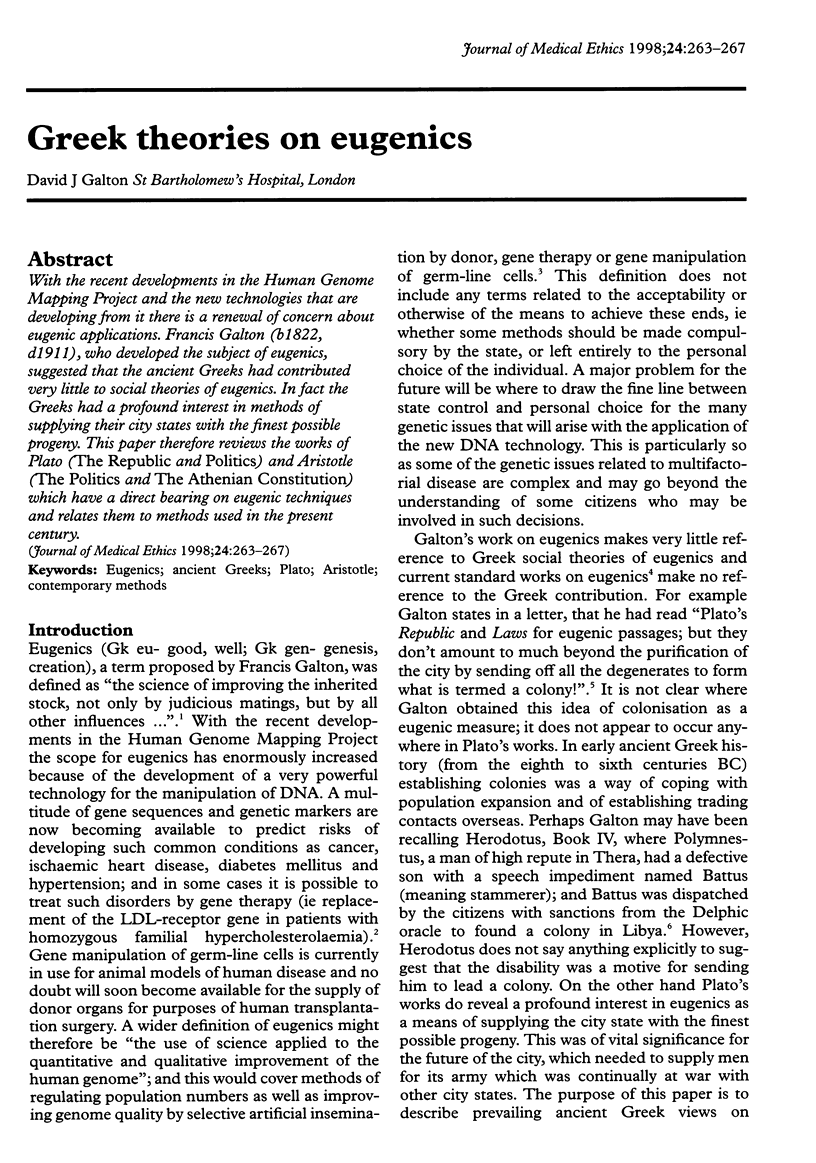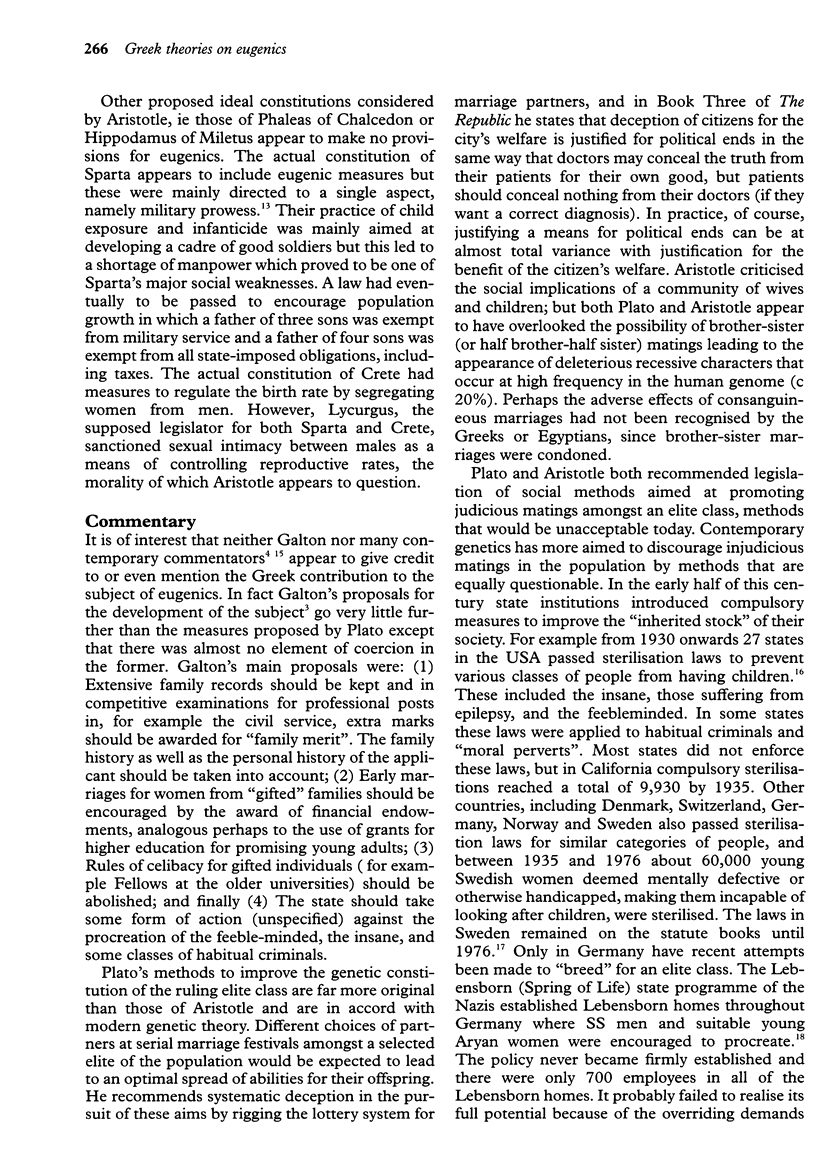Abstract
With the recent developments in the Human Genome Mapping Project and the new technologies that are developing from it there is a renewal of concern about eugenic applications. Francis Galton (b1822, d1911), who developed the subject of eugenics, suggested that the ancient Greeks had contributed very little to social theories of eugenics. In fact the Greeks had a profound interest in methods of supplying their city states with the finest possible progeny. This paper therefore reviews the works of Plato (The Republic and Politics) and Aristotle (The Politics and The Athenian Constitution) which have a direct bearing on eugenic techniques and relates them to methods used in the present century.
Full text
PDF




Selected References
These references are in PubMed. This may not be the complete list of references from this article.
- Armstrong C. Thousands of women sterilised in Sweden without consent. BMJ. 1997 Sep 6;315(7108):563–563. doi: 10.1136/bmj.315.7108.563. [DOI] [PMC free article] [PubMed] [Google Scholar]
- Galton D. J., Galton C. J. Francis Galton: and eugenics today. J Med Ethics. 1998 Apr;24(2):99–105. doi: 10.1136/jme.24.2.99. [DOI] [PMC free article] [PubMed] [Google Scholar]
- Grossman M., Raper S. E., Kozarsky K., Stein E. A., Engelhardt J. F., Muller D., Lupien P. J., Wilson J. M. Successful ex vivo gene therapy directed to liver in a patient with familial hypercholesterolaemia. Nat Genet. 1994 Apr;6(4):335–341. doi: 10.1038/ng0494-335. [DOI] [PubMed] [Google Scholar]
- Harris John. Is gene therapy a form of eugenics? Bioethics. 1993 Apr;7(2-3):178–187. doi: 10.1111/j.1467-8519.1993.tb00283.x. [DOI] [PubMed] [Google Scholar]


